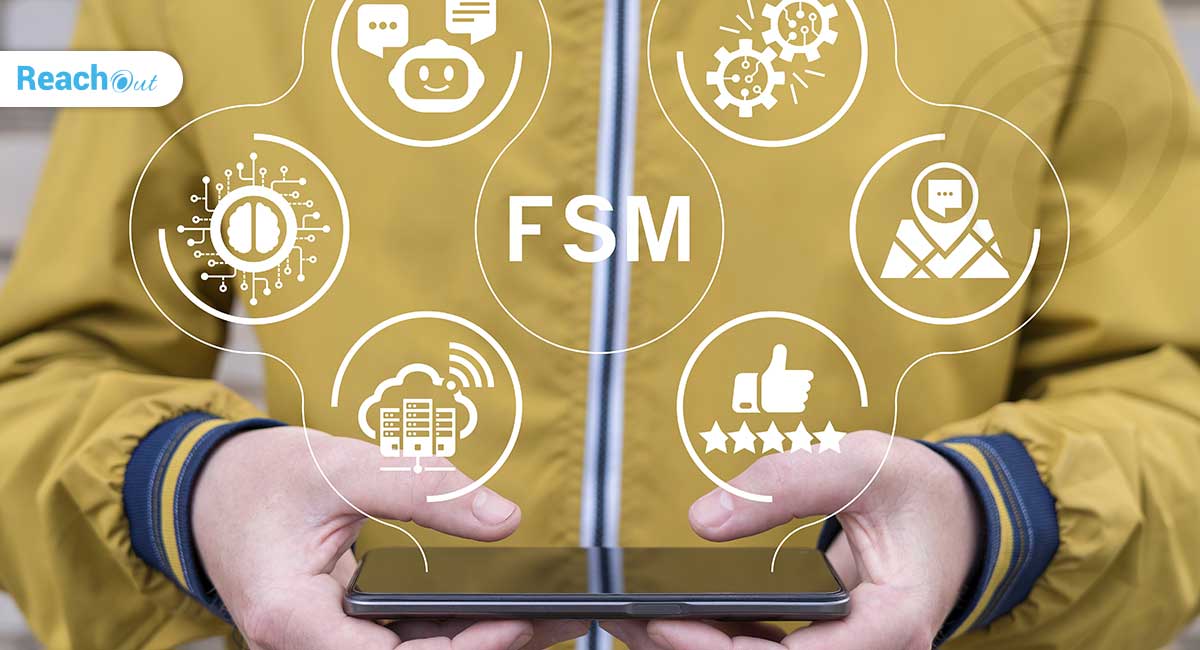
Ensuring Operational Safety in Field Service During COVID-19
COVID-19 crisis has disrupted field service companies like never before. The coronavirus is unlikely to go away soon, necessitating precautionary measures for everyone. Field service providers need to take certain considerations and follow these tips to face the “new normal” set in by the pandemic.
Related Reading: How Can Field Service Businesses Survive A Pandemic
1. Minimize Contact and Practice Social Distancing
Since the novel coronavirus COVID-19 spreads through person-to-person contact and through airborne respiratory droplets, field techs need to avoid physical contact, practice social distancing, adhere to basic hygiene, and take precautions that break the chain of the contagion.
Field service technicians should cut physical contact at work, to the extent possible. If they need to, then the field service enterprise should make sure that their employees follow these rules:
- Wear disposable face masks and gloves before entering the customer’s premises or work location.
- Maintain two meters (six feet) distance from customers and co-workers, right throughout the work. If working in a small room, make sure the customer does not enter the room.
- Avoid touching doorknobs or other common surfaces such as window handles. Technicians may call the customer to open the front door, if possible. If inevitable, wash hands thoroughly and replace the gloves after use.
- Carry a disposable mat, and place the tools of the trade in the mat, when at work.
- Refrain from using the customer’s bathroom or sink. If inevitable, wash hands and replace the gloves after use.
- Avoid paper. Offer an electronic report and invoice. If the customer insists on a written report or a paper invoice, place it on a surface rather than hand it to them.
- Avoid handshakes. You can greet each other verbally.
Related Reading: A Quick Checklist to Kick-start your Cleaning Business
2. Basic Hygiene Precautions
Observing basic personal hygiene precautions goes a long way in preventing the spread of COVID-19.
Field service technicians need to:
- Wash hands with soap and water for at least 20 seconds before and after the work. Use paper towels instead of cloth towels to dry. Put on the disposable gloves for the job immediately after washing hands.
- Avoid touching your face from the time of putting on the gloves, until taking it off and washing the hands.
- Use an alcohol-based hand sanitizer (hand rub) before wearing the gloves as well as after removing it. Wash your hands at regular intervals, especially at the end of each job. Sanitize all tools at the end of each job, and also at the end of the day.
- Discard gloves, mats, and facemasks after you exit from the customer’s premises. Bring a disposal bag for each job, and dispose of these materials as per the local regulations in place.
3. Customer Health & Safety
For a professional business, the safety of their customers and employees always come first.
Provide health and safety guidelines to customers before an upcoming visit. Provide assurance that the field agent will keep a safe distance and follow all the no-contact protocols. Also, request customers to:
- Sanitize the room and surfaces where the technician will work, before the technician arrives. Repeat the process after the technician leaves.
- Wipe and disinfect the machinery, equipment, and any other object left behind, after the field technician leaves. Preferably wipe and disinfect the technician’s path and any place the technician came into contact with.
- Open and close the doors for the field agent or technician, to prevent contact.
- Always maintain six-foot or two meters distance from the technician.
- Avoid handling electronic devices, clipboards, pens, and paper. Opt for contact-less electronic reports and invoices. Make digital payments. Field service management suites like ReachOut help you raise service requests, schedule and track work orders, generate reports, update both customers as well as field techs, and do much more.
Offering safety guidelines and recommendations show that you’re truly concerned and professional. This will increase your customer satisfaction. It reassures your customers and gives them the confidence that your business can handle the outbreak effectively.
4. Enterprise Level Precautions
Field service enterprises need to make the following business and policy changes to deal with the COVID-19 impact.
- Ensure a reliable supply of alcohol-based sanitizers, soaps, tissues, facemasks, and gloves. Keep respirators available for emergencies.
- Follow updates from The Center for Disease Control and Prevention (CDC), federal and state governments. Updates happen frequently. Some updates may appear contradictory to the previous updates. This is because the virus is progressing, and scientists discover new insights by the day. Be proactive to update the standard operating policies and other procedures based on the latest announcements.
- Tweak the HR policy. Make sure employees with underlying medical conditions such as heart disease, diabetes, or lung disease stay home. Likewise, allow sick employees, or those who show symptoms of fever, cough, or cold to stay at home. Allow telework for customer support and back-office staff.
- Consider reducing the number of service calls per day, or hire extra staff to ensure adhering to the above procedures. Communicate to customers that any delay is in their best interest of safety.
The COVID-19 virus is a threat for field service technicians and customers alike. However, field service is an essential business and has to continue. Refrigeration, cleaning services, fire and safety, appliance repair, HVAC, and other equipment are essential for normal life and safety. For instance, cleaning companies face a boom time during the pandemic. As time goes on, even other “non-essential” field service works such as lawn maintenance or landscaping become inevitable. A clear-cut standard operating procedure that factors in the risks will ease the anxiety and get the work done seamlessly.
Related Reading: Can Field Service Software Help Manage Unexpected Technical Interventions?
ReachOut Suite is at your disposal, during any hazardous time. Contact us to know more about how ReachOut can help you plan your fieldwork schedules, guide your technicians with the safety measures, and assist your administrative/ clerical staff seamlessly during the period of a global pandemic.
Ashmitha Chatterjee
Ashmitha aspires to enhance the efficiency of service technicians. With a unique perspective on the challenges and opportunities within field service management, Ashmitha frequently shares her knowledge through industry blogs, articles and workshops.
More posts by Ashmitha Chatterjee


